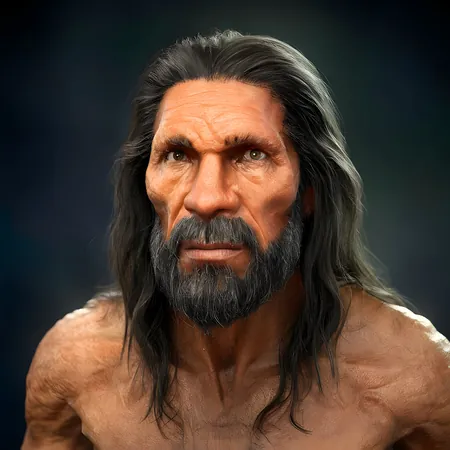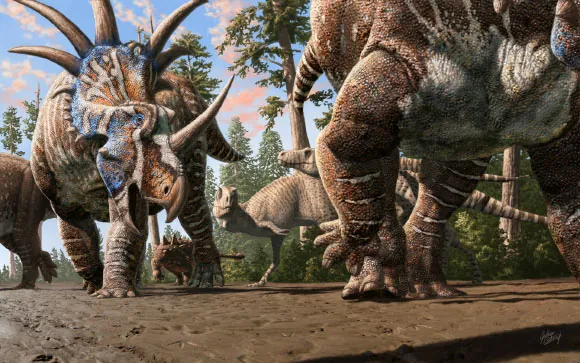
Unlocking the Secrets of Neanderthal DNA: How a Gene Variant Impacts Modern Human Muscle Performance!
2025-07-14
Author: Mei
The Hidden Influence of Neanderthal Genes
Did you know that a piece of our DNA comes from Neanderthals? Recent research shines a light on how a specific genetic variant influences muscle enzyme activity in modern humans. The enzyme AMPD1 is crucial for muscle energy production, and its deficiency can lead to metabolic myopathy—an issue that affects 9% to 14% of Europeans.
A Groundbreaking Study Unveils Genetic Connections
In a fascinating study published in *Nature Communications*, scientists compared ancient Neanderthal DNA with modern genomes. They discovered a unique AMPD1 variant present in all Neanderthals, absent from any other species. Laboratory tests showed this variant caused a staggering 25% reduction in enzyme activity, and in genetically modified mice, the drop was even more pronounced at 80%, significantly impairing muscle function.
Our Neanderthal Heritage: A Double-Edged Sword?
This Neanderthal variant made its way into modern humans through interbreeding that occurred around 50,000 years ago. Interestingly, 2% to 8% of Europeans today carry this variant, suggesting it has been largely tolerated. "Most carriers don’t face severe health problems, but the gene’s function is particularly vital for athletes," explains Dominik Macak, the study's first author.
A Game Changer for Athletes!
An analysis of over 1,000 elite athletes revealed that those with a non-functional AMPD1 variant are much less likely to reach peak athletic performance. "Carrying a defective AMPD1 enzyme reduces the chances of becoming a top athlete by 50%," Macak adds. This statistic highlights just how significant these ancient genes can be for modern human capability.
Reassessing Genetic Impact in Today’s World
While the impact of AMPD1 may seem moderate in everyday life, it plays a crucial role under extreme physical stress, like that felt by athletes. The researchers stress the importance of examining genetic variants within their historical and physiological contexts to truly grasp their effects.
Cultural Evolution Meets Genetic Legacy
Senior author Hugo Zeberg posits that advancements in culture and technology over the millennia might have diminished the necessity for extreme muscle performance. Understanding how these ancient gene variants shape human physiology can unlock insights into our health and genetic diversity today.
Stay tuned as we continue to unravel the mysteries of our genetic past and its surprising implications for the future!


 Brasil (PT)
Brasil (PT)
 Canada (EN)
Canada (EN)
 Chile (ES)
Chile (ES)
 Česko (CS)
Česko (CS)
 대한민국 (KO)
대한민국 (KO)
 España (ES)
España (ES)
 France (FR)
France (FR)
 Hong Kong (EN)
Hong Kong (EN)
 Italia (IT)
Italia (IT)
 日本 (JA)
日本 (JA)
 Magyarország (HU)
Magyarország (HU)
 Norge (NO)
Norge (NO)
 Polska (PL)
Polska (PL)
 Schweiz (DE)
Schweiz (DE)
 Singapore (EN)
Singapore (EN)
 Sverige (SV)
Sverige (SV)
 Suomi (FI)
Suomi (FI)
 Türkiye (TR)
Türkiye (TR)
 الإمارات العربية المتحدة (AR)
الإمارات العربية المتحدة (AR)